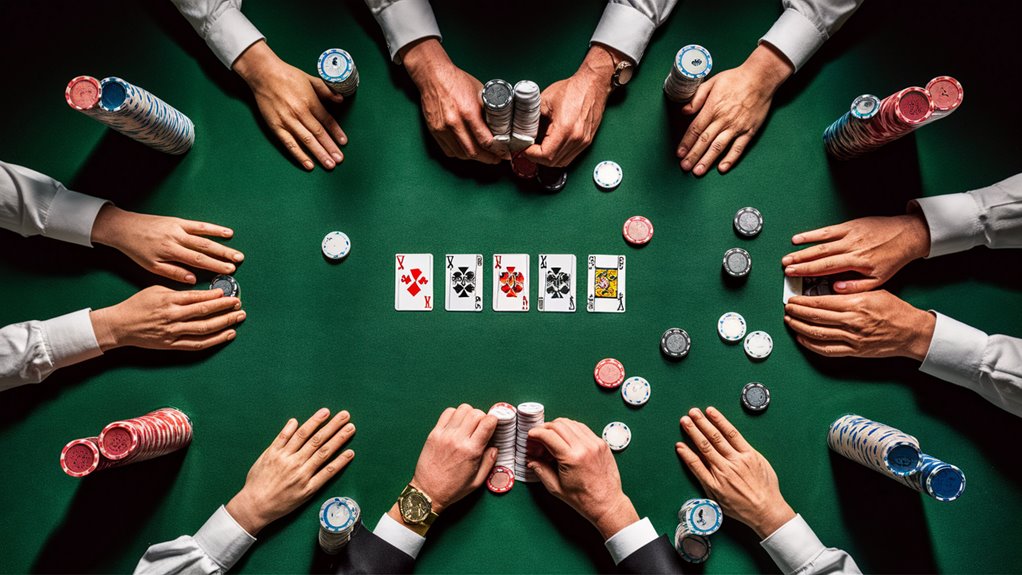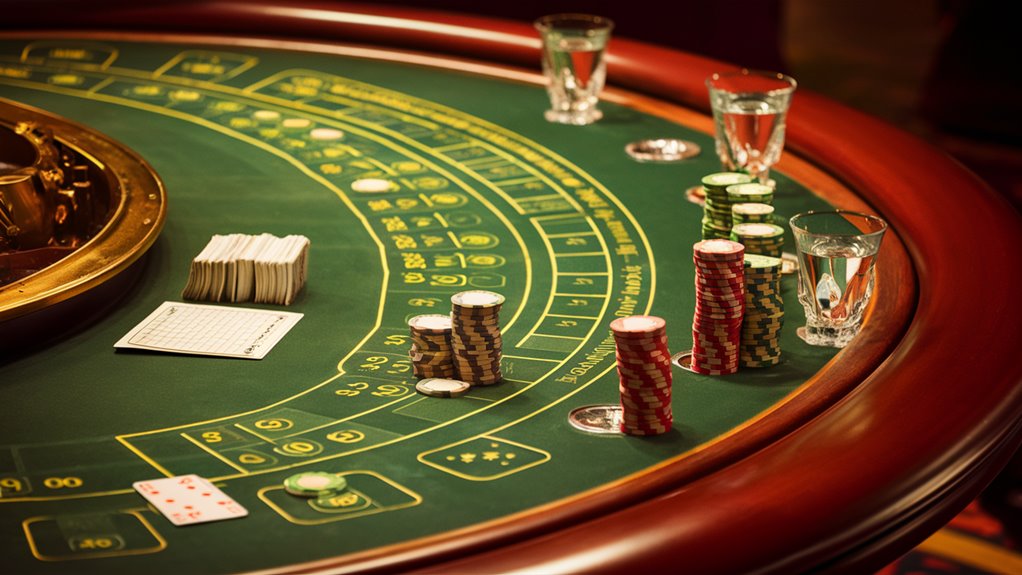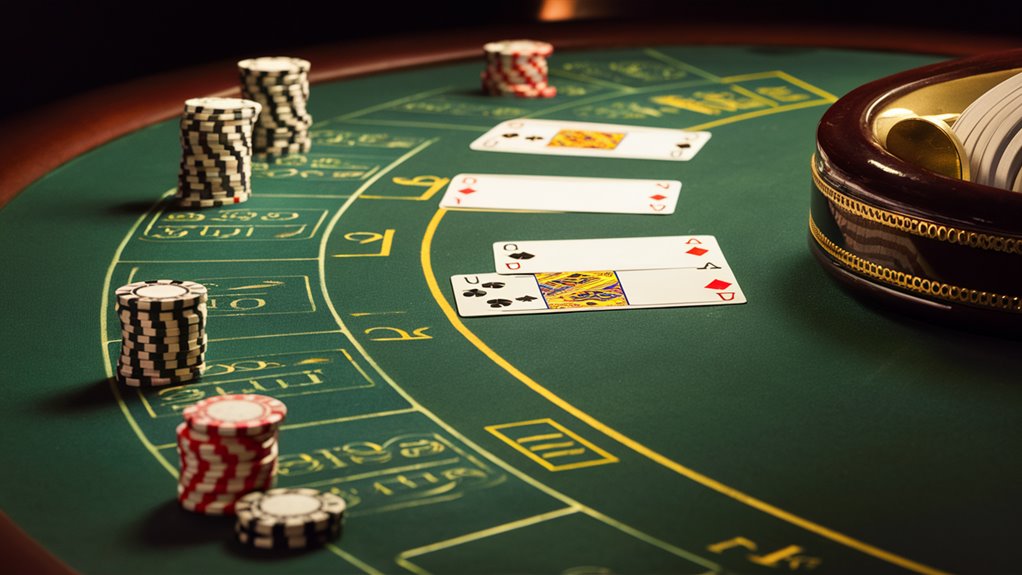How Casinos Get a Lot of Money by Giving You Free Drinks
Casino gambling is human society’s most acceptable form of consumption, and the casino company wants to make sure you never stop: completely free alcoholic beverages, designed to keep you playing and thus increase their profits.
The Science Behind Drinking Alcohol
The Multidisciplinary Approach to Alcohol and Casino Behavior
The biological interaction between alcohol and the decision-making process starts the moment that drink is knocked back. It affects the frontal cortex – the executive center of the brain – control for judgment, impulse control, and risk assessment. This neurological interaction creates the conditions for increased casino revenue.
Time-Oriented Changes of Behavior
After 15-30 minutes of drinking, the basic cycle of alcohol absorption/distribution begins to kick in with full force. Blood alcohol levels start to affect functions like:
- Rising risk-taking behavior
- Increasing bet size
- Vulnerability to chasing after losses
- Extended playing sessions
The chemical reaction also suppresses the stress which financial Ashflow Slots loss might bring. Although it prompts a release of dopamine, the brain’s reward neurotransmitter.
Casino Profitability and Alcohol-induced Cognitive Impairment
The cognitive changes brought about indeed stem directly from alcohol itself:
- Impaired time perception
- Less powerful mathematical thought processes
- Weaker odds calculating
- Financial constraints are lowered
The Business of Providing Free Drinks
Complimentary drinks are a proven revenue multiplier, capitalizing on fundamental neurobiological responses to alcohol over time.
Within the average casino environment, where the cocktail waitress is common, this biochemical interaction will make more than a dollar’s worth of gaming revenue for each dollar invested in complimentary beverages.
Social Interaction on Casino Tables
The Social Psychology of Casino Table Behavior
Understanding the Social Dynamics of Casino Tables
Essentially the solder of togetherness at the gaming tables, where shared experiences and mutual give-and-take make players friends. The round-table setting changes casual participants into active members of a spontaneously created community common to all members — brought together by the exhilaration which playing at one table in company always provides.
The formation of these spontaneous fraternity groups akin to those on college campuses actually affects tables players’ behavior a great deal.
These others are all correct; yes, in fact, some gaming tables exude such an electrifying atmosphere that players will serendipitously meet or recruit new playmates and enjoy many different games together. When participants develop rapport with fellow players, an increased commitment to the gaming experience follows.
These human relationships may take a variety of forms:
- Scheduled return visits to the new gaming group
- Enhanced presence in the casino through longer gaming sessions
- Peer-influenced wagering patterns, reflecting social group dynamics on feelings of responsibility and fairness
- Strengthened player loyalty via networks
The whole atmosphere is cooperative: players have more interest in giving each other hospitality and sharing between themselves the joy of ownership in an exciting gaming experience.
These components of table gaming constitute both the roots and fruits that complement each other at each successive stage, making possible interaction between human beings associated with these enterprises beyond a simple one-time event.
Decisions that are Unsound
Understanding the Psychology of Decisions That Are Unsound in Casino Environments
Outcomes of these Drinks
Alcoholic beverages given away free at casinos have been shown to significantly influence thought processes and behavior of the player. Research shows that while intake of prepared spirits tends towards negative attitudes in betting patterns per hour, this form is also conducive to gambling or playing with no heed at all for one’s limits of costs-on-the-fly. In other words, people who have been drinking in the casino make more bets and are less responsible.
Players who imbibe are typically unable to implement intricate gaming strategies effectively.
Welfare Implications of Unsound Gaming
The business model of casinos is built on a detailed cost-benefit analysis. While each drink represents mere pennies in operation, when someone has too much to drink, they can leave with tens of thousands lost at roulette owing to very high stakes, and self-restraint is definitely not a given item compared with the sort of people coming up for gambling these days.
This psychological set of results has many manifestations:
- Poor mathematics
- Efficacy of strategies
- Absolute decision-making under excessive emotional states
- Weakening overall bankroll management capability

The Benefits of Timing Drinks Thoughtfully
The key timing of when a drink is offered can not only sustain player enjoyment but also provide an extra edge strategically. They all too often save these spirited offerings to coincide with points of potentially fatal decision for you. This of course means the end of play in some cases and, as art with improvement, must have made such a well-rounded adviser.
Later, many games also provide various forms of reinforcer including fixed rewards and the random return. This not only keeps players attached to a game, but makes them feel that they need a psychological anchor.
However, such primitive observation becomes particularly apparent during a winning streak when some people observe themselves have formed or accepted an inverted understanding of profits and repeated its high-level outlier blunder on deeply underwater positions in RETIRE.
Effects on Gaming Behavior as Seen in General Alcohol Consumption
How Behind-the-Scenes Factors Influence the Gaming Experience
Effects on Decision-Making Process
What happens to your perceptions of time after Willow Wreck Bets drinking alcohol?
Long-term Drinking and its Effect on the Sense of Time
Yet under the influence of alcohol, time seems to take on both clock-like and arbitrary qualities. Research has also shown that once drunk, people become unable to accurately tell the time — implies that alcohol affects their temporal cueing or its temporal subtlety.
Not Drinking But Still Succumbing to Time
Alcohol’s Effect on the Sense of Time
When it comes to alcohol and how it changes our view of the passage of time, non-alcohol-induced factors are always at play.
Psychological and social implications
Temporal Distortion Effects: The combination of altered time perception and reduced inhibition can lead to extended periods of activity without proper breaks or self-regulation, affecting both personal safety and decision-making capabilities. Understanding these effects has important implications for public health and safety.
Cost Analysis of Casino Operations
Casino Beverage Costs: ROI on Complimentary Drinks
Strategic Investment versus Operational Cost
Strategic cost analysis shows that the complimentary drink service is a calculated investment rather than a standard expense for casino operations. The average cost of an alcoholic beverage was $3-$5 per drink, while typical slot machine revenue generates $20-$50 per player hour.
This strategic beverage investment brings strong returns in terms of increased player engagement and greater amounts of play.
Budget Allocation and Revenue Impact
Casinos strategically direct 20-30% of their beverage budgets toward free drink services, employing sophisticated control systems to monitor consumption patterns and gaming activity.
The ROI analysis highlights compelling metrics: Give 토토검증사이트 two free drinks ($8 invested) to extend playtime by one hour, and expected gaming revenue grows by $35–yielding significant returns on costs for beverages.
Player Behavior and Profitability Metrics
Performance data prove that guests who receive free drinks stay 150-200 percent longer at the gambling table than non-drinking patrons.
These players also show clearly less price sensitivity and a rise in wagers per hand, establishing the beverage system as an essential source of profit despite initial outlay costs.
The correlation between complimentary provision of services and gaming revenue definitively confirms its place as an organizing principle within this casino’s operational strategy.


